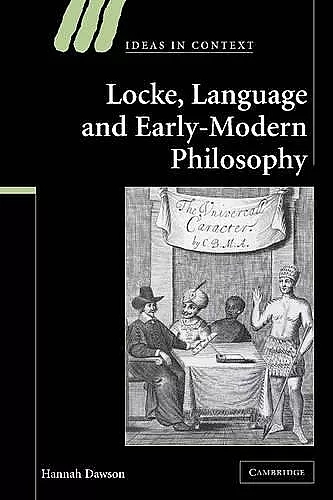Locke, Language and Early-Modern Philosophy
Format:Paperback
Publisher:Cambridge University Press
Published:18th Aug '11
Currently unavailable, and unfortunately no date known when it will be back
This paperback is available in another edition too:
- Hardback£109.00(9780521852715)

This book explains why language caused unease to writers such as Montaigne, Bacon, Descartes, Hobbes, and Pascal.
Exploring the astonishing preoccupation with language in early-modern philosophy, and culminating in an analysis of Locke's critique of words, Hannah Dawson examines a broad sweep of pedagogical and philosophical material from antiquity to the late seventeenth century. The result is a powerful and original contribution to the history of ideas.In a powerful and original contribution to the history of ideas, Hannah Dawson explores the intense preoccupation with language in early-modern philosophy, and presents an analysis of John Locke's critique of words. By examining a broad sweep of pedagogical and philosophical material from antiquity to the late seventeenth century, Dr Dawson explains why language caused anxiety in various writers. Locke, Language and Early-Modern Philosophy demonstrates that developments in philosophy, in conjunction with weaknesses in linguistic theory, resulted in serious concerns about the capacity of words to refer to the world, the stability of meaning, and the duplicitous power of words themselves. Dr Dawson shows that language so fixated all manner of early-modern authors because it was seen as an obstacle to both knowledge and society. She thereby uncovers a novel story about the problem of language in philosophy, and in the process reshapes our understanding of early-modern epistemology, morality and politics.
ISBN: 9781107403024
Dimensions: 229mm x 152mm x 20mm
Weight: 510g
380 pages